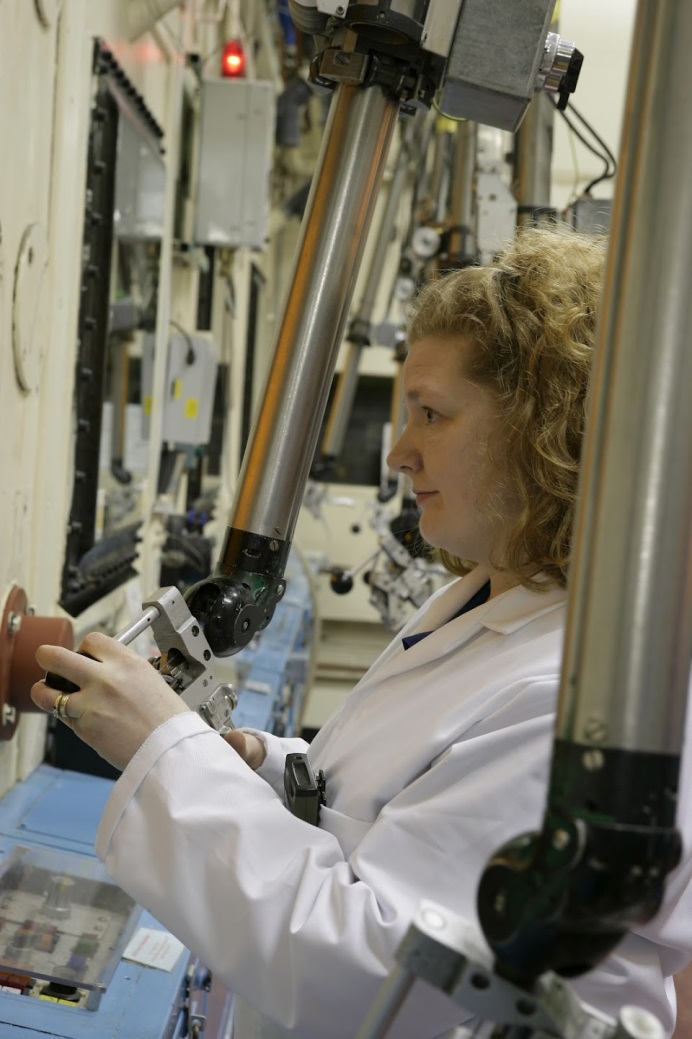Current situation
The OECD/Nuclear Energy Agency’s report, “Nuclear Education and Training: Cause for Concern?” (2000), demonstrated that many nations are training too few scientists to meet the needs of their current and future nuclear industries and authorities. Additional studies undertaken by different European governments to determine the health of their national nuclear education programs confirmed the OECD/NEA findings. Consequently, the European educational skill base has become fragmented to a point where universities in many countries lack sufficient staff and equipment to provide education in all, but a few, nuclear areas. Of particular concern, to the European Commission, authorities, industry and professional, university-based scientists are special skill-based deficits within nuclear chemistry at masters and doctorate levels.
 It is accepted that skills in these areas are of strategic, as well as immediate, importance for the maintenance of European nuclear operations and options within the evolving EU economy. The skills in nuclear areas are also important for meeting the challenges presented by unpredicted nuclear events (e.g., the Windscale fire, the Chernobyl accident, and terrorist and sabotage activities) where not only handling the technical situation but also making sure that information and recommendations to the public are correct and relevant is of key importance. As an example of the importance of the skills in nuclear chemistry, the on-going treatment of the vast volumes of water contaminated in the Fukushima Dai‑ichi NPP during the accident may be listed. Several of the processes and materials used in Fukushima have been developed by nuclear chemists from the partner institutions of CINCH-II project – University Helsinki or CEA - Commissariat à l’énergie atomique et aux énergies alternatives.
It is accepted that skills in these areas are of strategic, as well as immediate, importance for the maintenance of European nuclear operations and options within the evolving EU economy. The skills in nuclear areas are also important for meeting the challenges presented by unpredicted nuclear events (e.g., the Windscale fire, the Chernobyl accident, and terrorist and sabotage activities) where not only handling the technical situation but also making sure that information and recommendations to the public are correct and relevant is of key importance. As an example of the importance of the skills in nuclear chemistry, the on-going treatment of the vast volumes of water contaminated in the Fukushima Dai‑ichi NPP during the accident may be listed. Several of the processes and materials used in Fukushima have been developed by nuclear chemists from the partner institutions of CINCH-II project – University Helsinki or CEA - Commissariat à l’énergie atomique et aux énergies alternatives.
In order to mitigate the effects of the decline of number of staff qualified in nuclear chemistry, the CINCH-I project:
- gathered the representatives of the European universities and end-users, mediated mutual exchange of their views and confronted them with the Russian perspective,
- reviewed and evaluated the situation in nuclear chemistry education in the European universities,
- identified the EuroMaster in Nuclear Chemistry, guaranteed by the European Chemistry Thematic Network Association, as an optimum common mutual recognition system in the field of education in Nuclear Chemistry in Europe, and proposed “Minimum requirements” for such a EuroMaster,
- surveyed the status of Nuclear Chemistry in industry / the needs of the end-users,
- developed an efficient system of the combination of dedicated training and general‑purpose education/training compact modular courses, including the demonstration of three such courses (including the hands-on training component),
- developed and tested two electronic tools – NukWik – Nuclear Wiki and CINCH Moodle e‑learning platform as a basis of a future efficient distance learning system, and
- set up the institute of CINCH Associated Partners to further increase the efficiency of exchange of views.
The CINCH-II project - Cooperation in education and training In Nuclear Chemistry - is a direct continuation of the CINCH-I project.